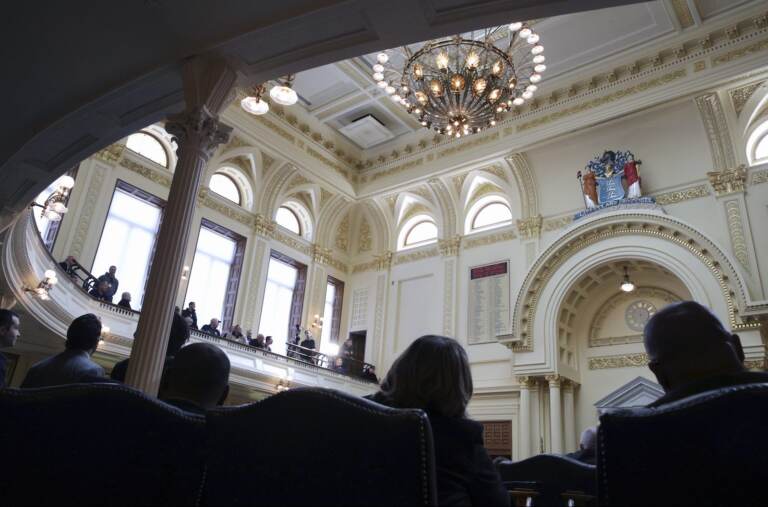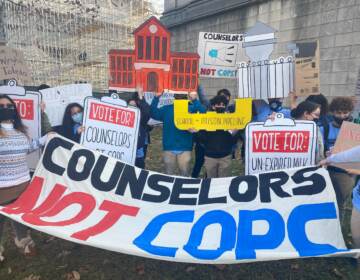N.J. lawmakers (again) push bills to study reparations, school desegregation
While the Legislature has recently moved on some measures, like efforts to integrate public schools, others have stalled for years.

The Statehouse in Trenton, N.J. is pictured in this file photo. (Mel Evans/AP Photo)
Some New Jersey lawmakers, including members of the state’s Legislative Black Caucus, are pushing bills they say will help address systemic racism in schools, state workplaces, and the state at large.
While the Legislature has recently moved on some measures, like efforts to integrate public schools, other bills, like one that would create a task force on reparations, have stalled for years.
The Senate Education Committee on Thursday narrowly approved a bill that would create a Division of School Desgregation within the state Department of Education. The purpose of the division would be to identify instances in which students are functionally, though not legally, segregated along racial and socioeconomic lines, and “to ensure better integration and a more diverse enrollment in public schools,” according to the bill, which was sponsored by Sen. Joe Cryan (D-Union).
The director of the division would be responsible for collecting and analyzing racial, ethnic, and economic data about students in the state’s public schools, and comparing educational outcomes among districts considered highly segregated and those considered more integrated.
The committee approved the measure along party lines by a vote of 3 to 2.
It comes about one month before attorneys are scheduled to give oral arguments on March 3 in a state school desegregation lawsuit. In it, the plaintiffs, including the Latino Action Network, the state chapter of the NAACP, and others, argue that since public school students in New Jersey must go to school in the districts where they live, which are often separated by race and class, the state’s school system has de facto segregation. A 2017 University of California report found that New Jersey ranked sixth “in terms of the highest segregation of Black students and seventh in segregation of Latinos.”
If passed, the bill specifies that the Division of School Desegregation would create a strategic plan to increase diversity in the state’s public schools, regardless of any kind of court-ordered desegregation plan.
Sharon Kengrell, policy and outreach director at the Education Law Center, advocated for the bill during a committee hearing. She also recommended several amendments, including one that would require $5 million to fund the division, and another that would require the state to provide annual reports to the Legislature on desegregation efforts.
Harry Lee, President and CEO of the New Jersey Charter School Association, said to address school segregation, “housing patterns” must also be addressed.
“The main driver of racially homogeneous schools is housing in New Jersey,” Lee said.
The bill was introduced in the General Assembly by Assemblyman Raj. Mukherji, but it has not been scheduled for a hearing. The effort has failed in previous sessions, along with others some lawmakers say will help the state take steps to deal with systemic racism.
In January, Assemblywoman Shavonda Sumter (D-35) reintroduced a bill that would create a state task force on reparations.
The task force would research and come up with proposals “to address the generational harms caused by New Jersey’s role in America’s institution of slavery and its legacy of systemic racial discrimination.”
Sumter, who chairs the Assembly Community Development and Affairs Committee, said she hopes to schedule a hearing on the bill, which has failed to gain traction since November 2019, when lawmakers first introduced it.
“The importance of the reparations task force bill is to have one report from thought leaders across our state that details New Jersey’s role in slavery and indentured servitude,” Sumter said.
Following the murder of George Floyd by Minnesota police and subsequent global protests, lawmakers like Sumter say they hoped the Legislature would move on the reparations task force bill.
Sumter said it will ultimately take “courage” to move the bill through the Legislature.
WHYY is your source for fact-based, in-depth journalism and information. As a nonprofit organization, we rely on financial support from readers like you. Please give today.







